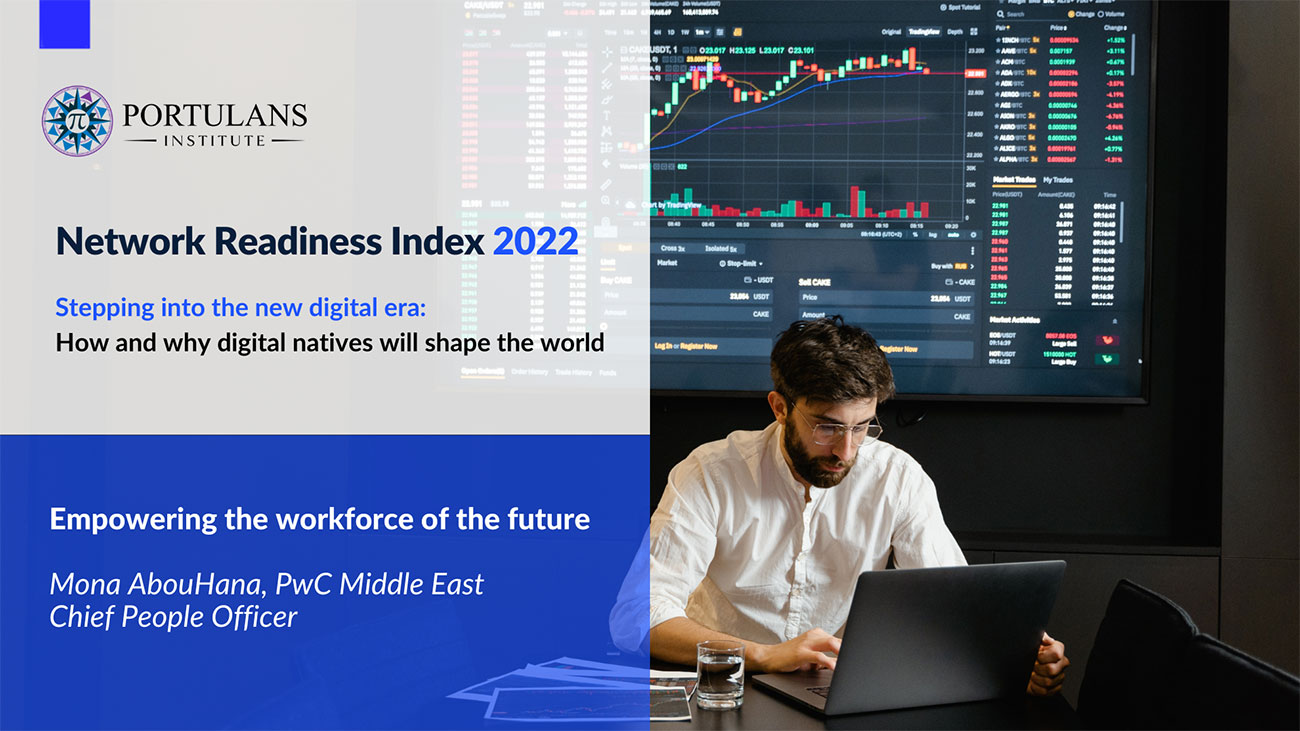Mona AbouHana, PwC Middle East Chief People Officer, shares some strategies for empowering the workforce of the future with the right skills, tools and technology for taking on the complex problems facing our world.
Digital transformation has only accelerated in recent years, and organizations are relying more and more on digital solutions in their operations. How can educators and employers help prepare younger generations so that their skill sets are compatible with new workforce trends and the demands of the digital age?
Mona: The world we live in is transforming at a rapid pace, and it’s on all of us to ensure our younger generation is equipped with the tools and skills they need to lead on the complex problems of the future. Having a mechanism in place that prioritizes investing in digitally upskilling students and employees as part of a continuous learning and development programme is crucial. A recent study revealed that 80% of the Gen Z population want to work with cutting edge technology in their future careers. What we’ve learned through our own digital upskilling journey at the Firm is, it’s not necessarily teaching how to use the specific tools and technology that’s important, but more so creating a ‘learning agility’ culture, where colleagues are constantly learning and unlearning new things. We call this ‘citizen-led innovation’ at PwC and it’s part of how we remain relevant in a continuously changing and competitive employer market, as well as how we ensure our employees remain relevant as the workforce of the future.
In fact, at PwC Middle East, we’ve digitally upskilled 70% of our total workforce in the past year alone, including certifications from top global institutions across data analytics and much more. This not only speaks to our long-standing development legacy at the firm, but is part of the robust set of employee value propositions we offer to enhance our people’s experience.
Leveraging and grounding everything we do in data as an entry point to the decision making is absolutely crucial and it’s how we are empowering our workforce of the future with the skills, tools and technology they need to make informed business decisions.
Given your expertise in talent management and development, and your experience working with young people transitioning into the workforce, what have you observed about this generation’s values, ideals, and goals? Does their worldview differ from other generations who have not had ubiquitous access to digital technologies and constant connectivity?
Mona: By 2036, studies project that Millennials and Generation Z will surpass the Boomers as the largest generation in our society, and this next generation of job seekers have new expectations of their employers and the professional environment. A recent study revealed that 91% of Gen Z participants say technology would influence job choice among similar employment offers.
We have a lot to learn from this generation. Not only do digital natives have a constant thirst for how they can innovate creatively, but they also highly value meaningful, transformative work that is purpose-led. In fact, 45% of the Gen Z population want work that has meaning and purpose beyond just getting paid.
What I find to be the most interesting among this group however is the juxtaposition on their views on data, tech and digital. This generation loves data – in fact they thrive on it and are widely accepting of the data two-way street (giving their data in return for a personalized digital journey) – it’s how they are able to get information and compare it to other people’s experiences.
In fact, Millennials are the first and foremost providers of data in a way that previous generations were not. With that said, 73% of the Gen Z population rank data security as a high priority, yet only 31% say they are doing everything they can to protect their data. As you can see, this is a completely different ball game in comparison to previous generations and can be quite polarizing. On one hand, we see parts of this generation being completely open to data sharing and content creation, and on the other hand, we have the same generation calling for digital detoxes as part of how they prioritize their overall health and wellbeing.
Mona Abou Hana is PwC Middle East Chief People Officer and a member of the leadership team, responsible for formulating and delivering the firm’s people strategy. She is also a partner in PWC’s consulting practice working with governments and the public sector. She specializes in strategy and policy formulation and focuses on national planning, innovation & entrepreneurship ecosystems as well as upskilling strategies to ready the workforce for the digital world. Mona also leads PwC Middle East Digital Upskilling Program. Mona holds a BA in Economics from the American University of Beirut and MBA from INSEAD. She is fluent in English, Arabic and French.
